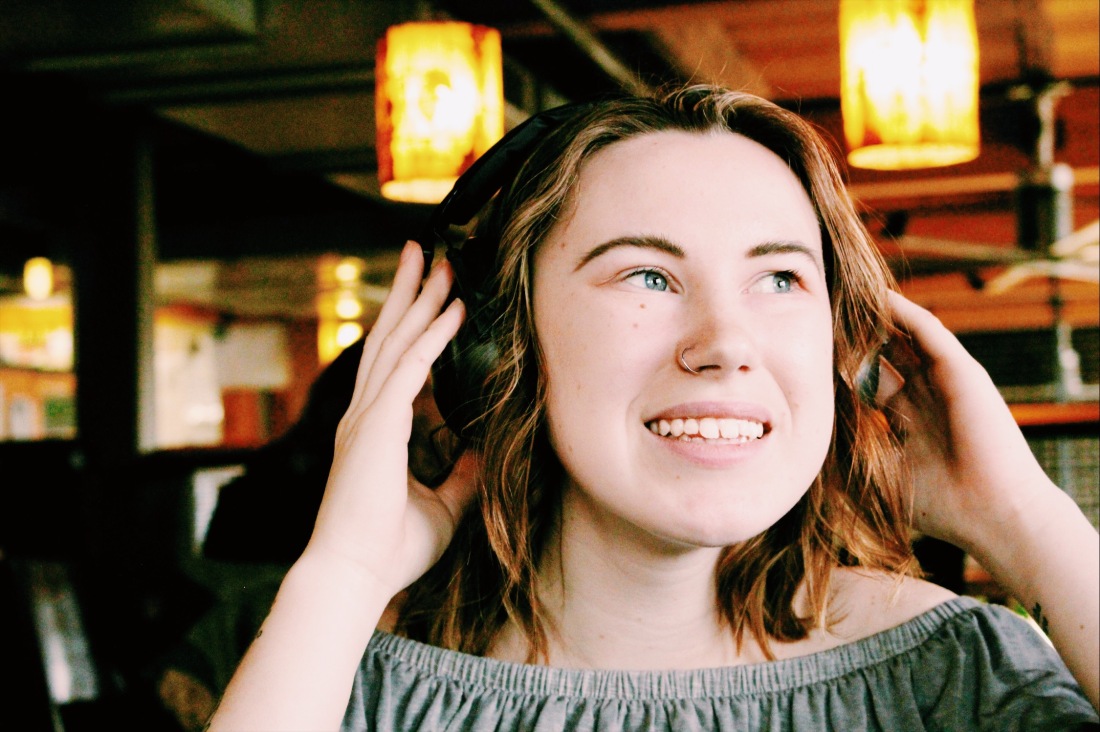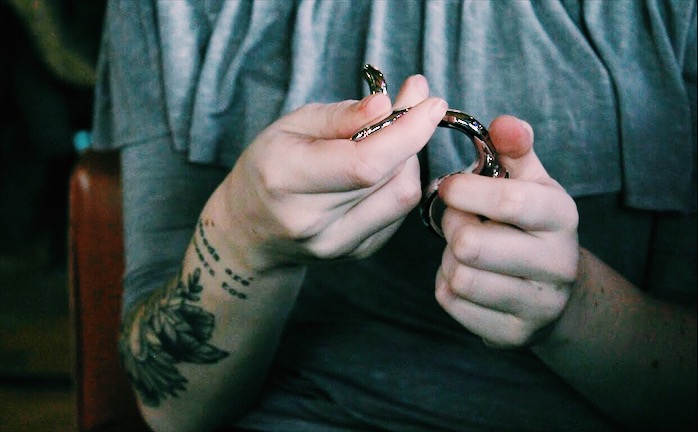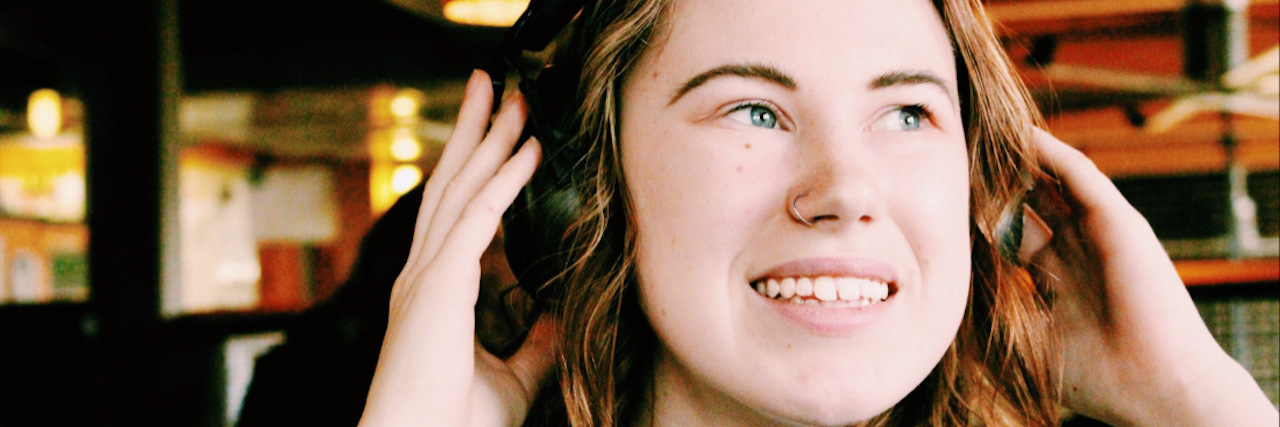Autism and Adulthood: Some Coping Strategies as I Start College
Making a list and checking it twice, 10, 20 times over. Here’s a glimpse into the journey of autistic adulthood — a journey I am barely beginning and quickly learning how intense it is and unprepared I really am for it. I’ve also included some autistic tips to help others in my figurative mind-shoes get the respite and coping skills they deserve.(Sidetone: I am 18 years old and graduated high school last spring.) Today, I got handed the keys to my first apartment. I fumbled over the nooks of the keys with my fingers, soaking in the moment so I could remember it later. Walking around the small but quaint rooms that now belonged to me… I felt proud of myself, I felt contentment, and I felt intense fear. It’s going to be a few weeks until I am settled into my new home and actually living there, as I need to deep-clean, organize and arrange until the space reaches a version of simplified yet decorated perfection. You’re probably wondering what any of this has to do with my autism. But the simple answer is, it has everything to do with my autism, as autism affects every aspect of my existence. But recently, I have just begun to realize how much it really does affect and influence every moment of my life.
Adulthood isn’t easy for anybody. It’s an endless trial of mistakes and learning. Growing and wilting. Expanding and decreasing. Adulthood is the epitome of life and the epitome of challenges. But navigating adulthood while being autistic, that’s a whole other world of crossroads and mountains. Now, I don’t even fully know how difficult this is going to be. I don’t even have a clue. But my anxiety sure has some guesses. For now though, I won’t give my anxiety the time of day. Instead I am going to focus on the realities I do know will happen and I have experienced.
The biggest challenge ahead: starting college. Don’t get me wrong, college is a battlefield for everybody who experiences it. But I have a bundle of other college struggles neurotypical people usually don’t have worry about. College, defined by both a sensory-seeking and sensory-avoidant mind: big crowds of people, unknown faces everywhere you look, and many, many various noises of all sound levels constantly? Sensory overload, here I come. Having to meet and talk to strangers? Social scripting — time to jumpstart and go into overdrive until I eventually need to hide to avoid crying on my new shirt. Having to listen to professors speak in endless strings of information? Be ready to spend so much energy trying to pay attention and listen, that I don’t even process the words you’re saying. But it’s OK because I know this is going to be hard, and I know it’s going to be one of the most challenging environments I can ever be put in. So, I can self-prepare, self-access and self-regulate. So for any of you on the spectrum or off who are worried about college, here are some coping methods that have either worked for me or I have personally used and seen be successful in the autistic individuals I work for. (Disclaimer: these might not work for everyone, as nothing is a “one size fits all” approach, but it might help someone else too and that’s what matters.)
1. Ear defenders. (Headphones/Earplugs/Earmuffs… whatever you want to call them.) They are lifesavers when it comes to large crowds, grocery stores and other places with a lot of various noises. Be sure to buy some that cancel out background noise but still allow you to hear when others are talking to you. Personally, I buy Champion brand shooting headphones from Walmart, as they only cost $9.99 and are super durable. I am hoping they work well in lecture halls! I used to be embarrassed and afraid to wear them in public, but I promise you — once you understand what you can and can’t handle, accepting and embracing yourself gets a lot easier. Theres nothing “weird” about self-care, even if allistics (non-autistics) don’t always “get it.” (Pictured: Me wearing and rocking my ear defenders in a crowded coffee shop.)

2. Stimming. Man, oh man. Finally allowing myself to stim and self-regulate in all the ways I need has been life-changing. Being a victim of bullying throughout my entire life, I didn’t allow myself to do anything that would make me “stand out” and appear “different.” So whenever I caught myself subconsciously swimming, I’d punish myself with negative self-talk so I could allow myself to fit society’s standards. Otherwise, called “masking.” And let me tell you, masking is a painful and difficult way to live as an autistic. I still do it when I feel its “needed,” but I am working on allowing myself to be myself and do what my body needs. A great way to do that is stimming! Some of my favorite stims include: finger tapping, where I tap two of my fingers together very quickly and with a lot of pressure (I do this almost everywhere and it helps me ground myself quite easily and fairly unnoticeably.); rocking, which I tend to do mostly in my own home but it’s definitely a happy stim; playing with fidget toys (at first, when fidget toys started to become a trend, I was slightly annoyed for multiple reasons, but now, it’s kinda nice because I can use my fidgets without seeming too “out of place” or “different” which helps if you have social anxiety like me!) I personally love the “marble in a finger trap” fidget, thick fidget spinners, gel packets, Crazy Aaron’s thinking putty, Tangles, sparkly bounce balls and a few more I always recommend to keep in your purse or bag. And each one was $4 or less! (Pictured: me stimming with my favorite tangle toy.)

3. Being honest about your diagnosis. Whether you’re on the spectrum, have ADHD, anxiety, depression or any mental illness or disability, being honest about it to others when it’s beneficial is so, so, so helpful. I know there’s an incredible amount of stigma around neurodiversity and mental illness, so it can be extremely nerve-whacking to speak up about, and that feeling in your chest when you talk about it never really goes away. But, it’s really good to speak up about it anyways and work to break the stigma! I hope you all have the ability and chance to do so one day, and I hope it will change your life for the better in a lot of aspects. When I started being honest about my autism and anxiety to my friends, they better understood why I acted certain ways/why things could be so hard for me/and why I didn’t always understand their social cues. This helped them be more understanding of my needs and helped me work on being more vocal on how I can be a better friend when I didn’t understand something. It helped some of my family better interact with me. (Example: a few of my relatives have stopped trying to uncomfortably hug me when they see me and instead, fist bump which is totally awesome for someone touch-aversive when it comes to most people.) It’s also helping me get the assistance and support I am going to need in college and my classes. I have recently also bought two pins to keep on my bag when I am out and about in case I have a meltdown or go non-verbal in a store. I can point to them so people might understand and cut me some slack. So all in all, when you get to a comfortable enough place where you can safely be honest about your diagnosis, do it and it’ll be worth all the “backlash.”
4. If you’re struggling in a relationship (platonic, romantic, professional): Tell them. I have always been incredibly bad at this. I would be confused at why a friendship was going downhill and why someone was upset at me, and instead of questioning it, I would withdrawal and basically give up entirely on the situation. This makes for some lonely days. But now, if I am struggling in a relationship, I say/text something along the lines of: “Hey, I was wondering if our relationship is all good, or if something is negatively impacting it. If I missed some social cues or something you said to me, please let me know in detail so we can work on fixing it together.” This makes personal connections be a lot less upsetting and negative when you’re someone like me and struggle with most social cues and understandings, especially what others are feeling. Now, if you do this and work to fix things, and the other person puts in zero or minimal effort… don’t blame yourself. Social situations are tricky and hard to navigate. If they can’t try to understand you like you are for them, let them go and don’t feel guilty. You will eventually find people worth learning from your perspective. Especially in college, you’re going to find someone who’ worth your energy. So, drink some coffee, and focus on you for now. (Pictured: my cup of coffee.)

5. Stop the negative self-talk. When the world isn’t made for people like us, it’s common that we are going to have a challenging time navigating it. Don’t be so quick to be upset at yourself when you “mess” up a conversation, when you need to leave class because the environment is becoming too much, or for not being able to make as many friends as everyone else apparently has. Give yourself extra time, make sure you have a comfortable and safe space to retreat to when needed, keep food with you that is sensory comforting for you, have some fidgets with you, write out some note cards of positive self-talk such as: “This moment is overwhelming, but it will pass.” “Don’t be too rough on yourself. “Your mind and body deserve love and patience.” “Do what you need to so you can calm down.” “Don’t worry about others right now.” Have an emergency contact on hand to talk to or message when stuff is getting bad. Have a support system at school, whether that be a counselor, teacher or friend. If needed, have social cards to hand to others if, for example, you often go nonverbal, are nonverbal or have public meltdowns. And more the anything, love yourself. You’re wonderful the way you are, no matter what others say. You are appreciated, people do care, and I am always a friend you can reach out to if you feel alone. (Pictured: me being happy with myself.)

I hope some of this was helpful, interesting or useful for anybody reading it. Feel free to leave comments about other autism-related or non-related topics, you’d like me to write about or questions you want answers to. I’m here for you, my readers.
Follow this journey on Coffee and Neurodiversity.
We want to hear your story. Become a Mighty contributor here.

